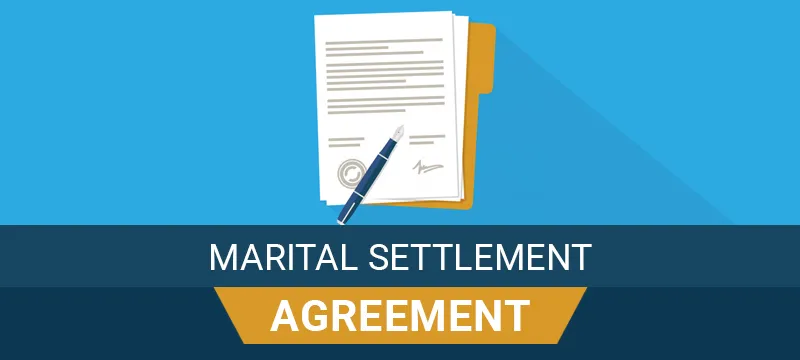When most couples talk about love, they don’t want to think about contracts. But a marital agreement isn’t about mistrust. It’s about clarity. It protects your finances, simplifies decisions, and limits future conflicts. Whether you’re newly engaged or already married, a well-structured agreement can become your most valuable financial safeguard.
Key Highlights
- A marital agreement protects both partners financially and reduces risk.
- It sets clear expectations and limits legal costs during separation or divorce.
- Couples can define ownership of assets before issues arise.
- Proper agreements reduce court involvement and long disputes.
- Spousal support, debt responsibility, and asset division get clarified upfront.
- Custom agreements give peace of mind and future financial stability.
What Is a Marital Agreement?

A marital agreement is a written legal document between spouses or partners. It outlines how assets, debts, and financial responsibilities will be handled during the marriage and after separation or divorce. There are two main types: a prenuptial agreement signed before marriage, and a postnuptial agreement signed after marriage.
This agreement does not mean the couple expects divorce. It means they are prepared for life’s uncertainty. Many couples also use the agreement to clarify how to manage income, joint purchases, and future inheritances. It adds structure and transparency to the relationship. That alone can help avoid future conflict and financial surprises.
Why It’s Smart Financial Planning
Without a clear agreement, divorce becomes expensive and time-consuming. Legal fees can escalate quickly. Judges often decide what happens to your assets. That removes control from both partners. A marital agreement prevents that.
You avoid court battles. You reduce the time spent arguing over property or spousal support. You prevent confusion about what belongs to whom. This leads to faster resolutions and lower legal fees. And if you run a business or hold real estate, protecting your personal and commercial assets is non-negotiable.
If you’re unsure how to start, speak with family lawyers who specialize in drafting fair, enforceable agreements. They know how to guide you without drama. Kabir Family Law focuses on helping couples protect themselves early. Their approach centers on clarity and practicality, not pressure.
What Should Be Covered in the Agreement?
Each agreement is tailored to the couple’s needs. But the best ones answer these essential questions:
Asset Ownership
Who owns what? Property, savings, investments—make it clear. Define whether future earnings remain separate or become joint property.
Debt Responsibility
Decide who is responsible for loans, mortgages, or business debts. Without clarity, one partner might carry an unfair burden later.
Spousal Support
Define if support will be given and under what terms. This removes future guesswork and helps both sides feel secure.
Business Ownership
If one partner owns a business, protect it. Define what portion (if any) the other partner is entitled to.
Future Gifts and Inheritance
Address how inheritances or family gifts will be treated. Keep personal assets separate when needed.
When all of that is in writing, there’s no room for confusion. You stay in control.
How a Marital Agreement Cuts Long-Term Legal Costs

Legal battles are expensive. Even a basic divorce can cost thousands. If you factor in disputes over property, support, or custody—it adds up. A marital agreement avoids that.
- Less time spent in court
- Fewer arguments about asset division
- Reduced stress and emotional strain
- Smaller legal bills and faster settlements
Even if the relationship stays strong, the agreement sets helpful rules. It helps manage shared expenses and long-term plans. Think of it as insurance against chaos.
Common Misconceptions That Cost You
Some people believe a marital agreement kills romance. Others think it’s only for the wealthy. Wrong on both points. Anyone can benefit.
Myth 1: “We don’t have enough money to need one.”
Even if you rent an apartment and have modest savings, the agreement protects you. Divorce isn’t limited to the rich.
Myth 2: “It means I expect us to fail.”
Planning doesn’t mean pessimism. It means responsibility. Couples plan for everything else—why not protect their finances too?
Myth 3: “Courts won’t enforce it.”
That’s false. Courts enforce fair, legal agreements—especially those drafted by qualified family lawyers.
When Should You Create One?
The best time is before marriage. But it’s never too late. A postnuptial agreement is just as valid.
Create one:
- Before marriage (prenuptial)
- After marriage (postnuptial)
- When starting a business
- When receiving an inheritance
- After major life changes (children, career shifts, new property)
Don’t wait until conflict appears. By then, it’s harder to agree.
How to Get Started Without Conflict
You need legal guidance and honest communication. Don’t draft it on your own. Use a neutral, experienced lawyer who puts your needs first.
Both parties should:
- Be transparent about assets and income.
- Agree voluntarily, without pressure.
- Have separate legal advice if needed.
- Put everything in writing with signatures.
That builds trust and makes the agreement stronger in court.
Final Thoughts

A marital agreement is not cold. It’s practical. It gives you peace of mind, control, and legal protection. If things go well, you never need to use it. But if not—you’ve protected your finances, reduced emotional strain, and avoided costly battles.
You lock in clarity. You protect each other’s futures. You make decisions early, not during conflict.
Don’t wait for problems. Plan with purpose.



